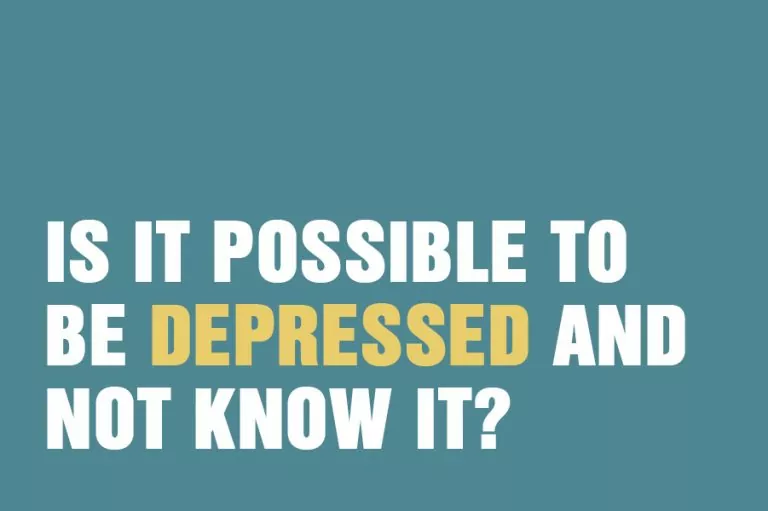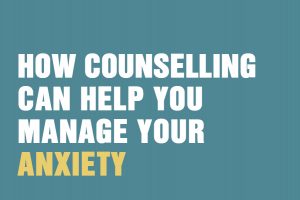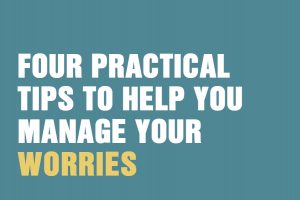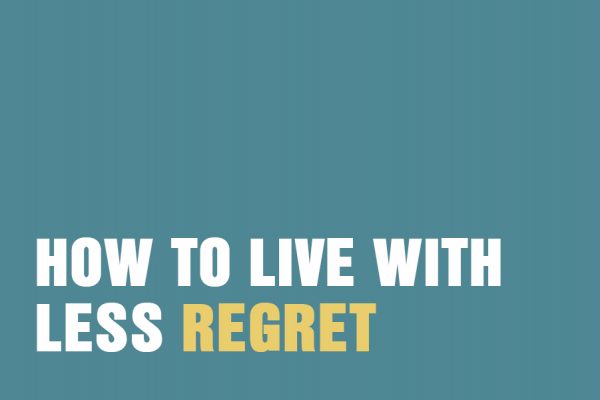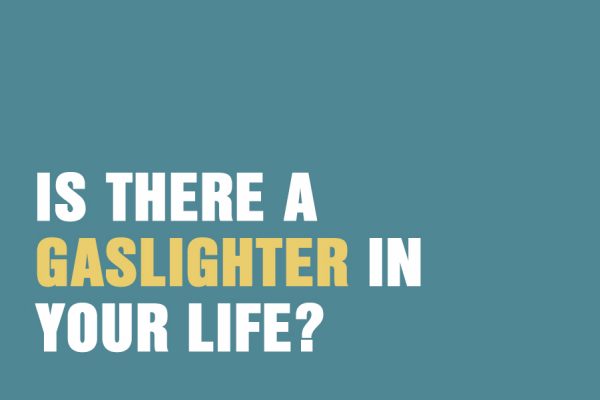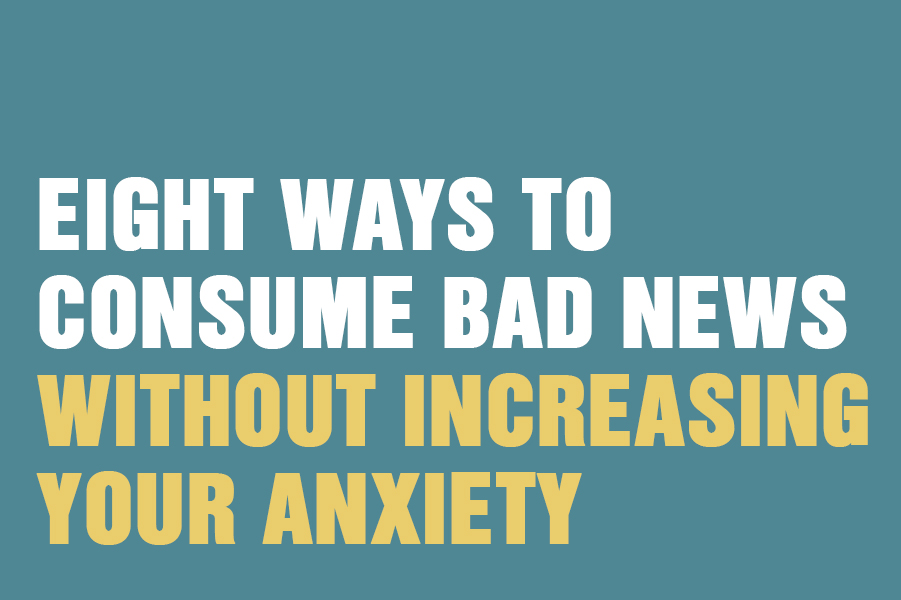Public awareness about the symptoms of depression is quite high, and as psychotherapists and counsellors, we spend a lot of time working with people with depression, so we know quite a bit about what depression looks like. Yet, when I experienced a bout of depression a few years ago, it took me a long time to realise that that’s what it was. This realisation made me see that one of the common uniting themes in people with depression is not actually realising that they are depressed.
One thing that makes depression so hard to spot, especially in oneself, is that it often comes with a negative internal dialogue telling you that ‘you are useless’ or ‘you are a loser’. This negative view of yourself becomes so pervasive that you actually believe you have mucked things up, or that it’s your fault that you don’t feel good about yourself.
In hindsight, it is blindingly obvious that you are thinking like a depressed person and that, rather than being a person who has failed, you are someone with a treatable illness. However, at the time, especially if you see yourself as good at coping with things and expect yourself to ‘soldier on,’ you will be aware that you do not feel good or at your best, but will put it down to being a mess or a disaster or to other factors.
Let’s delve into the complex subject of depression, including why depression is so hard to identify, signs and symptoms of depression and when to seek help from a mental health professional. We’ll also answer the commonly asked question – can you be depressed without knowing it?
How common is depression? 5 facts and statistics you should know
Depression is far more common than you might realise. If you’re struggling with depression, it might comfort you, in some small way, to know that you are not alone. The way you’re feeling is perfectly normal – the good news is, there is help out there that can get you on the road to feeling more like your old self. Let’s go over some facts and statistics about depression:
- Depression is the most prevalent mental health problem
- Worldwide, more than 264 people suffer from depression
- Statistically, women are more likely to be diagnosed with depression than men
- The pandemic has been a trying time for many people, with one in five UK adults suffering depressive symptoms
- Around half of adults aged 55 and over have experienced depression
The thing is, these statistics don’t tell the whole story. They’re limited to the number of people who acknowledge the issues they’re experiencing and actually admit it to themselves and their doctor before seeking help. For a number of reasons, depression isn’t so easy to identify, and it can be hard to seek out the help we need.
Can you be depressed without knowing it?
In short – yes. Depression isn’t as clear and distinctive as you might at first assume. It can be subtle, intrusive and insidious. You might not at first recognise a sign of depression for what it is – and even when you do start to suspect you’re depressed, you might feel tempted to deny it.
So why can it be so difficult to recognise depression for what it is? There are several factors at play here:
1. Depression can look really different in each person it affects
Your depression might look completely different to the next person’s. You might not even have one symptom in common. For example, one person with depression might feel very low, have some suicidal thoughts, really bad insomnia, have mood swings, miss meals and not be able to eat more than a few morsels. They may also be very distracted and unable to concentrate, while suffering with issues relating to self esteem. Whereas, another person with depression can actually feel not that down, or not all of the time, but feel they have lost interest in everything, and feel unmotivated to do even the activities they used to really enjoy. They might sleep and eat very well but just feel terribly tired and slowed down all the time, and feel completely worthless.
Those two examples are very different and yet both presentations fit with a depressive disorder. Left untreated, these symptoms could seriously negatively impact your life in the long-term.
2. There might be a good reason you feel down
If you have just gone through a bereavement, job loss or a divorce or are having health problems, you might think, ‘oh well of course I am affected by that.’ You expect to feel bad, and you expect yourself to ‘get over it’. But if you carry on expecting yourself to get back to okay without processing the emotions, this can become depression rather than just a reaction to a difficult phase in your life, and it might affect your overall health.
3. There is no obvious ‘reason’ to be depressed
On the other hand, you might be confused that you are feeling depressed for no reason. Or at least, no obvious reason.
Depression is not always associated with a life event or difficult phase. It could relate to something from earlier in your life that is triggered by something, such as seasonal shifts that you don’t even notice. Or there might be things under the surface, such as relationship difficulties or never feeling supported by others, that have caused the low mood, but we haven’t made the connection. If there is no obvious trigger depression can be very difficult to spot.
4. Depression comes in different levels of severity and develops very gradually
The symptoms of depression can arise and move very slowly from one level to another meaning that from day to day and week to week you might not notice any changes or become aware of these increases or new symptoms. It is hard to spot such slow movements of mood, self-image, motivation and energy. But then one day someone will say something about you or you might somehow otherwise get a glimpse of yourself and realise how all the changes and symptoms fit together.
5. Each symptom of depression will develop at different times
People often describe depression as a fog, and it does rather creep in slowly coming at you in different directions and changing the way you feel and the way you think about things. Depression often has an insidious onset — we develop a symptom here, a symptom there. We might not have as much energy as before, and a few weeks later we notice that we’re more irritable than usual. And it is not always obvious that both those things are part of the same underlying depression.
6. Depressed doesn’t always mean ‘sad’ or ‘low’
Many people with depression don’t really feel sad, it is more that they feel numb or apathetic and disinterested in things. Your depression might even manifest in other ways, with other emotions – for example, you might be angry or resentful. Not everyone might acknowledge or understand anger to be a possible symptom of chronic depression.
7. We don’t want to see ourselves as ‘depressed’
Despite all the brilliant mental health awareness campaigns, there is still a lot of stigma around depression. People often take that stigma in and apply it to themselves, which means they see any lack of energy or vigour or feeling sad or low as a ‘weakness’ or ‘failure’ rather than a more complicated issue relating to brain chemicals. All of which makes it hard to recognise our own depression, and harder still to seek treatment.
8. We like to see ourselves as ‘tough’, ‘resilient’ or ‘strong’
Many of us pride ourselves on our ability to shoulder up and ‘keep on keeping on’ so the idea of depression just does not fit with our identity. And so we attribute any symptoms such as loss of appetite or disturbed sleep patterns to something else, such as stress.
How to Know if You’re Depressed
With depression being so hard to recognise, or even acknowledge within yourself, how can you really tell if you’re depressed? Let’s look at the most common signs of depression. Remember, depression looks different for everyone, so it’s possible for you to experience only some of these signs:
- Lacking energy or feeling tired
- Feeling restless and agitated
- Feeling tearful
- Feeling angry
- Not wanting to talk to or be with people
- Not wanting to do the things you usually enjoy
- Reaching for alcohol or drugs or food to help you cope with your feelings
- Finding it hard to deal with everyday things
- Not sleeping
- Not eating
Why is it important to recognise Depression?
Coming to see our depression for what it is can be hugely helpful, even life changing.
As above, depression can affect every area of your life, making you feel as though everything is falling apart: you are not sleeping well, you are snappy with everyone, you cannot feel bothered about doing anything, nothing seems any fun any more, etc. If you can put all these daily struggles under a single label it makes them much more manageable. Instead of five or six difficulties, you have one. Depression is not always easy to tackle, but it is way easier than trying to struggle with six or seven problems without knowing what’s going on!
Another thing is that, once you have named depression, you can work out how best to get it treated. This might include going to the GP to discuss its management, although if it is a low-level depression it is highly possible to manage it through a combination of self-awareness, self-help and some support from a counsellor or the people around you. There is strong research evidence that talking therapies alleviate depression, medication can also help. Just know that, once identified, you can begin to work through this and start to feel better.
What to do when depressed
Living with depression can be tremendously isolating. You might not know who to turn to or what to do. The important thing to remember is that you have options, and things can get better.
It all begins with accepting that you have depression, and knowing you want to get better. Talking can really help treat depression. Open up to close friends and family. Go to your GP when you are ready. Medication can help a lot of people while they begin to process their emotions, but if you are uncomfortable with prescriptions, then there are ways to navigate depression without medication. For example, you can get counselling for depression – talking to someone removed from your day-t0-day life, someone qualified and trustworthy such as a mental health professional, can make a real difference.
You can also begin with lifestyle changes. Exercise can help with depression, as can cutting back on alcohol and eating healthily, while getting yourself into a routine. There is no magical, quick solution to depression, but there are always avenues open to you, and people who will help you on the road back to better mental health.
If you feel you would like a safe space in which to open up about your depression, therapy could be very helpful. Just call 020 8673 4545 or contact us today – our friendly, compassionate team will talk you through your options.

